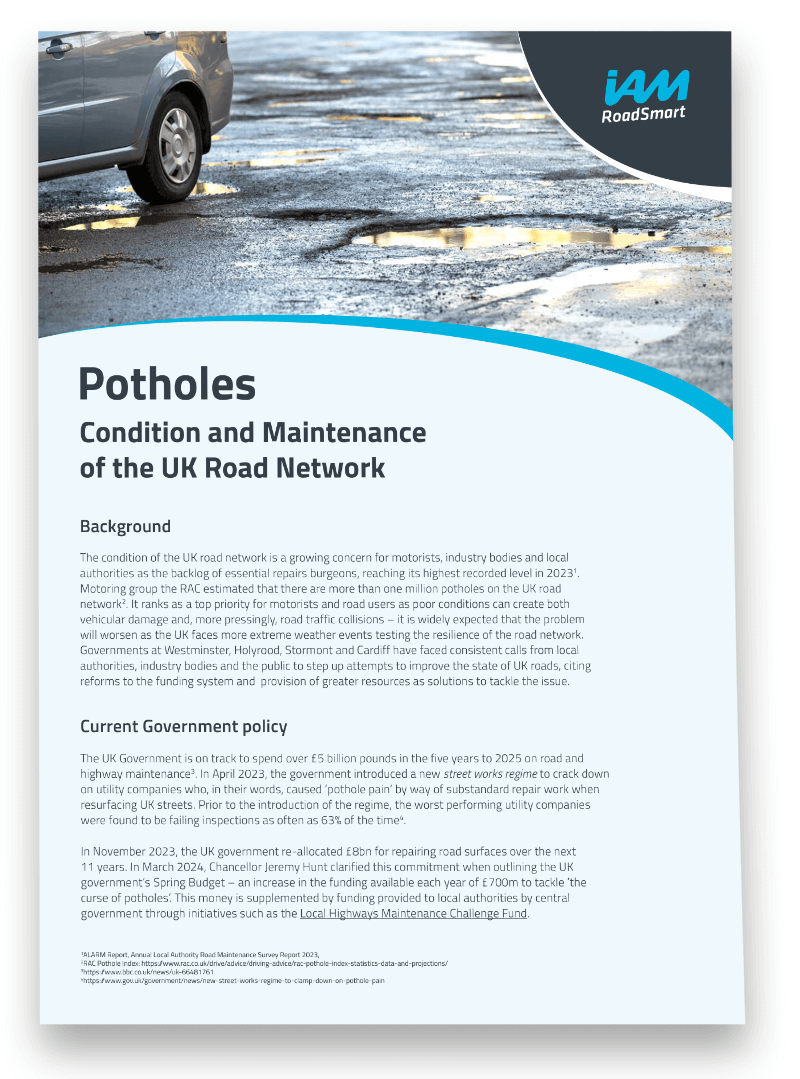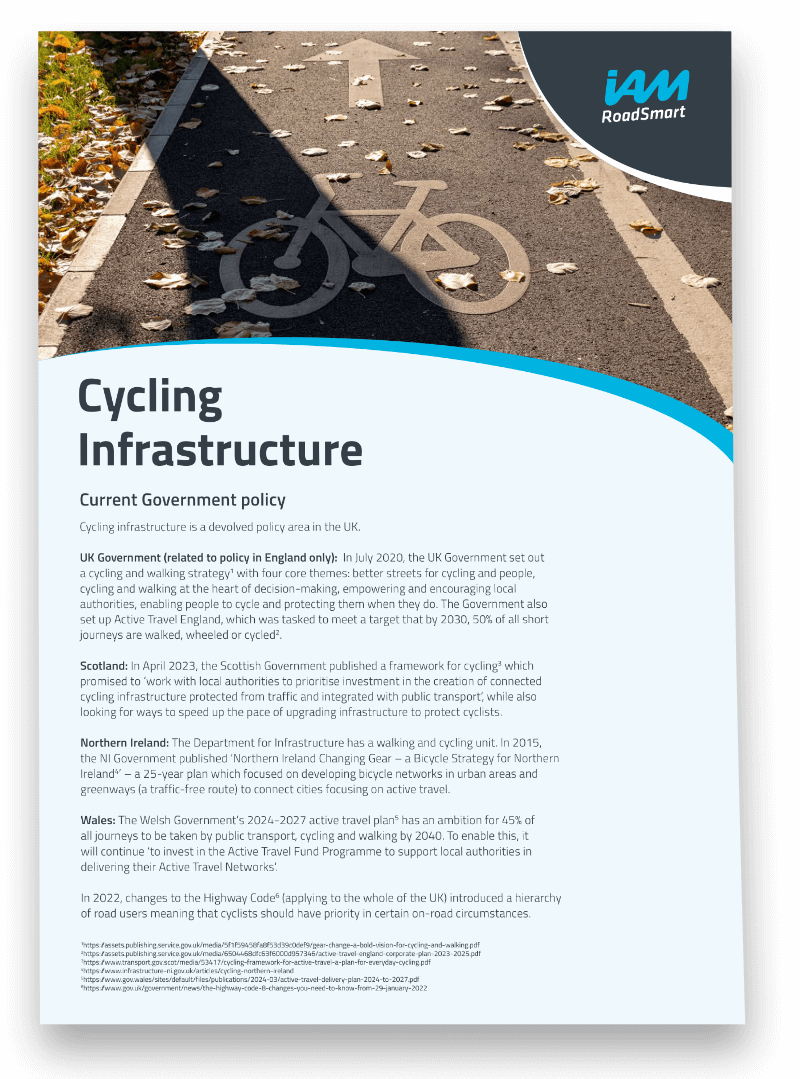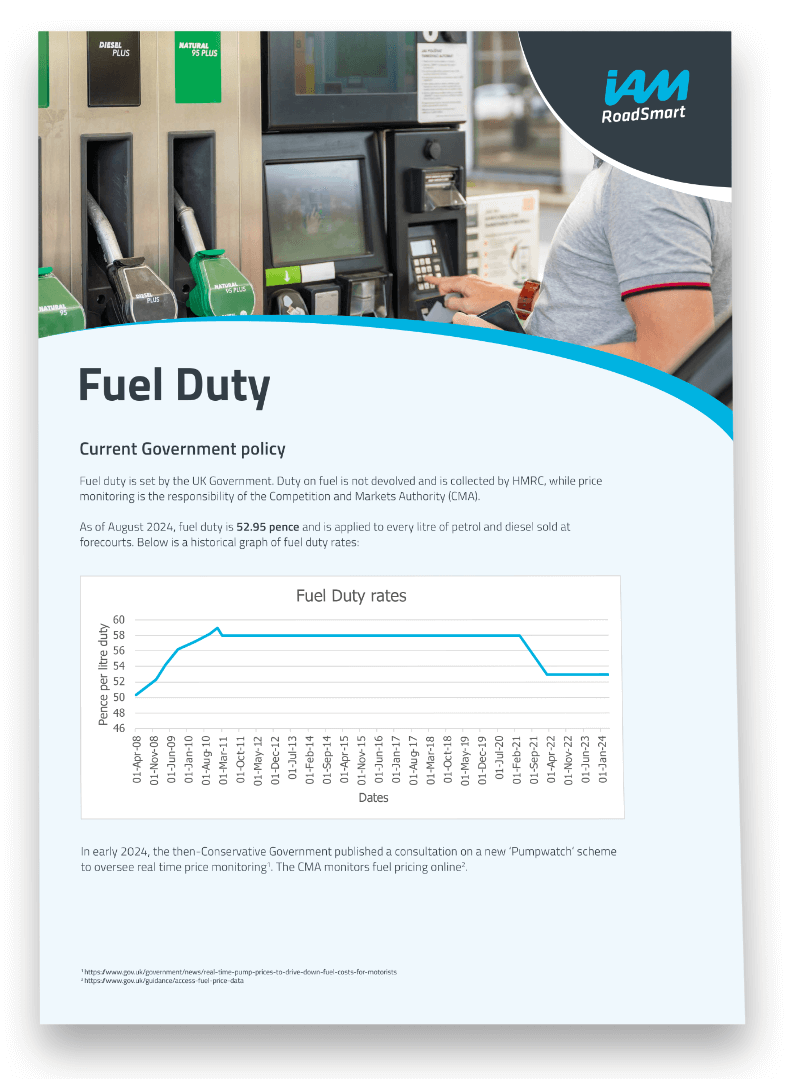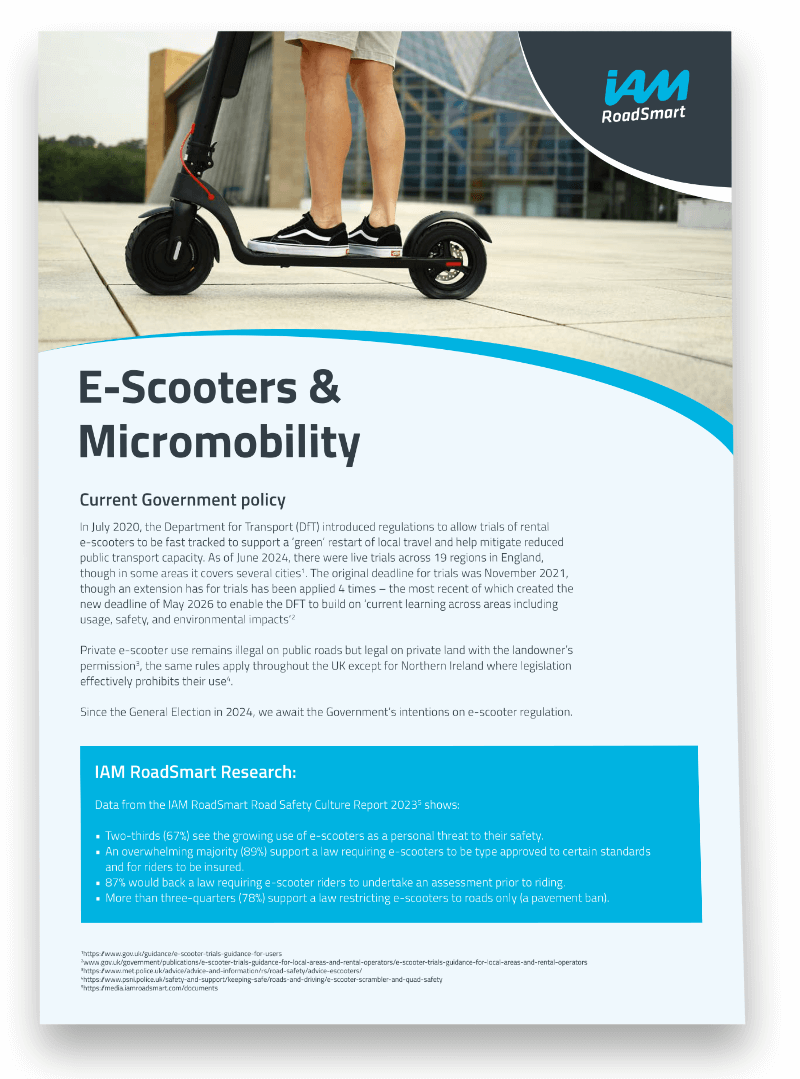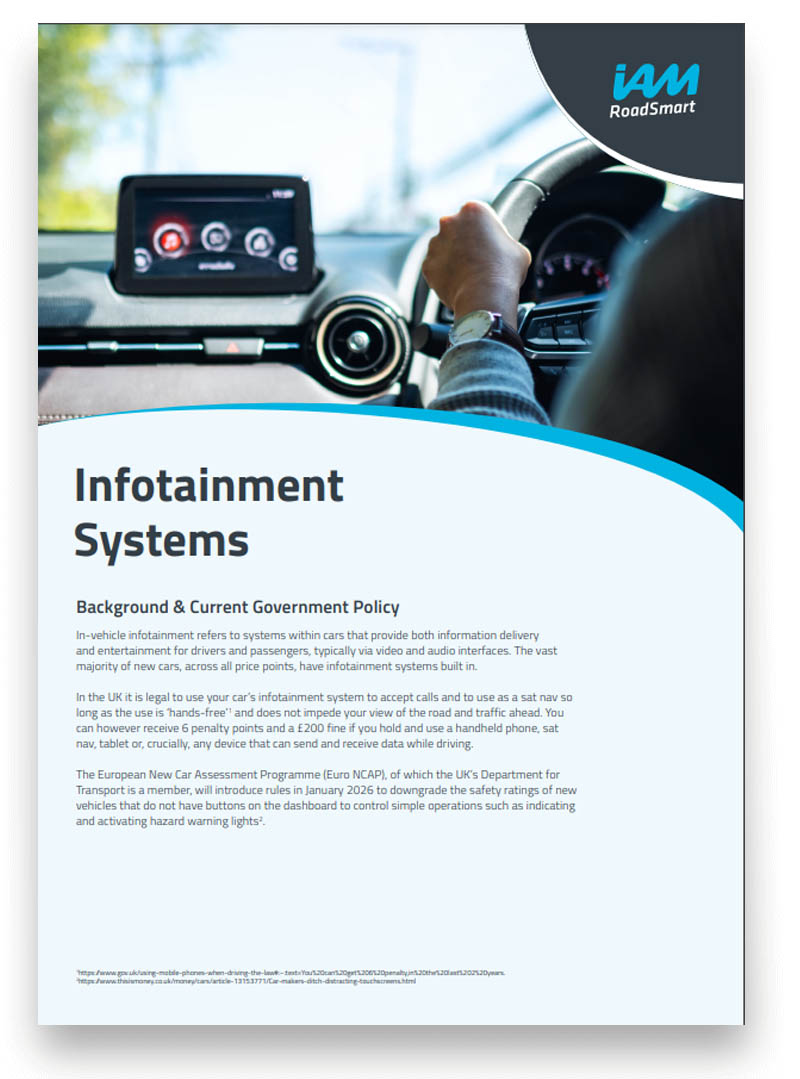Our Policies
Mobile Phones & Driving
IAM RoadSmart calls for reviewing and potentially increasing penalties, better enforcement technology, educational campaigns, and corporate accountability to address the growing problem of mobile phone use while driving, especially among younger drivers.
Younger Drivers
IAM RoadSmart advocates for a 12-month minimum learning period, improved road safety education, and reduced insurance costs for young drivers.
Graduated Driver Licensing (GDL)
IAM RoadSmart research shows strong public support for a 12-month learning period before the practical test and for post-test advanced training.
Older Drivers
IAM RoadSmart advocates for raising the mandatory renewal age to 75 with an obligatory eye test, implementing compulsory driving assessments for those over 85.
Drug Driving
IAM RoadSmart calls for enhanced measures, including separate rehabilitation courses for drug-driving, improved detection methods, and collaboration with the health sector to raise awareness about the impacts of prescription medications on driving.
Drink Driving
England, Wales, and Northern Ireland have the highest legal limit in Europe at 80mg/100ml, while Scotland reduced its limit to 50mg/100ml in 2014.
Research shows that while drink-driving deaths have decreased significantly since 1979, progress has stagnated
in recent decades.
IAM RoadSmart's research indicates strong public concern about drink driving and support for stricter enforcement.
Potholes
There is growing concern over potholes on UK roads, with a significant backlog of repairs and the impact it has on motorists.
IAM RoadSmart's research shows that potholes are a major concern for drivers, with many having to avoid damage or change routes. The organisation calls for action, including uniform standards for pothole repairs, a national roads renewal programme, and a re-evaluation of the government funding regime.
Cycling Infrastructure
Current government strategies are aimed at increasing cycling and walking, including targets for short journeys and infrastructure improvements. Cyclists remain a vulnerable road user group.
IAM RoadSmart calls for action on several fronts, including building high-quality segregated cycling infrastructure, promoting cycling skills courses, and improving driver awareness of cycling-related Highway Code changes.
Fuel Duty
As of August 2024, fuel duty, set by the UK Government and collected by HMRC, stands at 52.95 pence per litre for petrol and diesel. A majority of drivers have altered their behaviour due to high fuel prices, including driving more slowly to conserve fuel and making fewer journeys.
IAM RoadSmart's research indicates that price is a significant factor in choosing where to fill up, with many drivers willing to travel extra miles for cheaper fuel.
E-Scooters & Micromobility
The Department for Transport has been running rental e-scooter trials across 19 regions in England since 2020, with the latest extension pushing the deadline to May 2026.
Research from IAM RoadSmart indicates significant public concern about e-scooter safety, with a majority supporting laws requiring type approval, insurance, rider assessment, and restricting e-scooters to roads only.
Infotainment Systems
Infotainment systems in vehicles provide both information and entertainment but pose significant safety concerns. In the UK, hands-free use is legal, but holding a device while driving results in penalties.
IAM RoadSmart urges further research into infotainment’s impact on driver safety and recommends that car manufacturers reintegrate physical buttons for essential controls.
IAM RoadSmart Opinion Panel
We have invited a select group of IAM RoadSmart members to join the IAM RoadSmart Opinion Panel to take part in regular online surveys. You may have been invited to take part in a survey about Speed Limits, Motorcycle Air Vests, and Headlight Glare, at the end of which you would be invited to join the panel.
These surveys will be used to support IAM RoadSmart’s campaigns, press releases, research and discussions with Government. This is your chance to get your voice heard.
To ensure that the panel provides a representative voice, we have teamed up with Online95, an independent market research agency to provide valuable evidence and insight into what matters most to you.
Online95 abides by the UK Market Research Society's code of conduct and guidelines.
The Information Commissioners Office (ICO) is the UK's independent authority set up to uphold information rights in the public interest, promoting openness by public bodies and data privacy for individuals. Online95 is registered with the ICO and comply with the principles of the General Data Protection Regulations (GDPR) (EU) 2018.
For more information about the IAM RoadSmart Opinion Panel please email: [email protected]
Our tenth annual report report focuses on a number of key areas, namely concerns among the driving public relating to cost, safety and others’ driving. In addition to this, we delve into personal behaviours and habits to understand how drivers are conducting themselves on the roads and what may be causing them to make unnecessary and sometimes dangerous manoeuvres.
Our Campaigns
96e1f085032968e9a61eff1e000def30.png?sfvrsn=6ac8985c_2)
Drug-Driving
Drug-driving collisions and casualties have gone up by over 260% in 10 years, and convictions are increasing every year. The impact is devastating, and getting worse.
Infotainment
Worrying results from our recent research show that the latest in-vehicle infotainment systems impair reactions times behind the wheel more than alcohol and cannabis use.
.png?sfvrsn=1523905c_2)
Motorcycle Safety
We have launched a campaign, supported by organisations across the industry, to make the roads safer for motorcyclists - recognising them as vulnerable road users.

Drink-Drive
IAM RoadSmart has calculated the true cost of your drink. Should it take you over the drink drive limit, the financial impact following a conviction could be as high as £70,000.

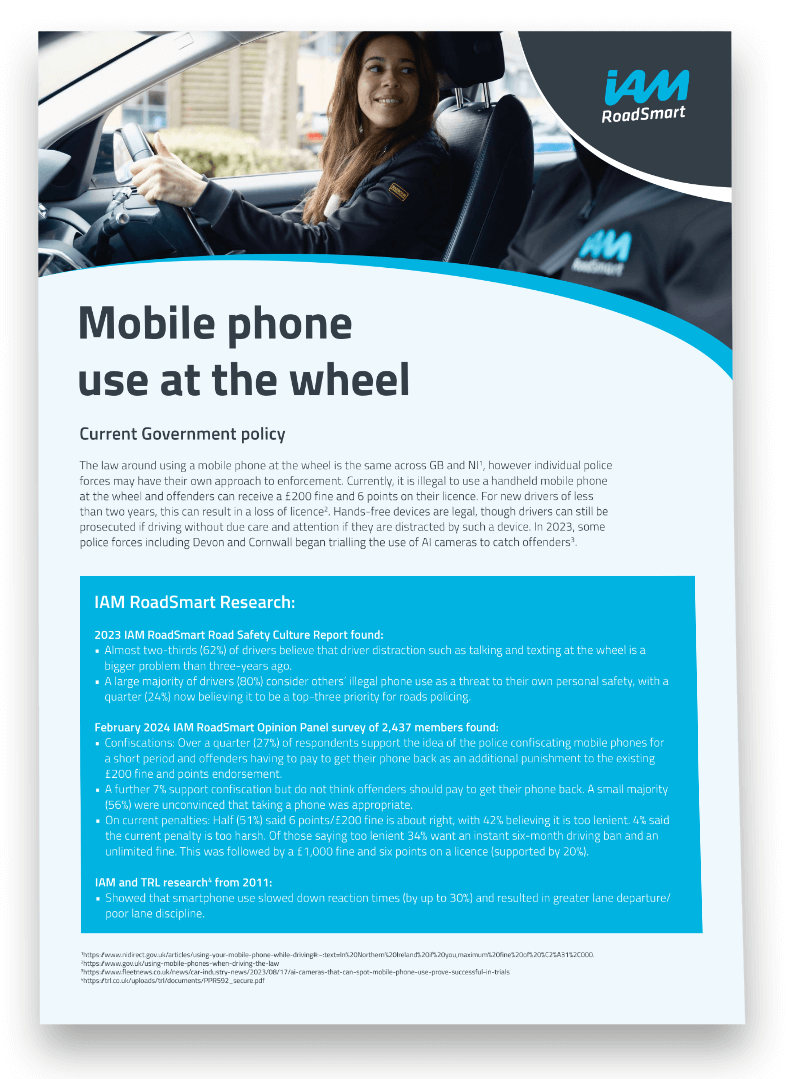
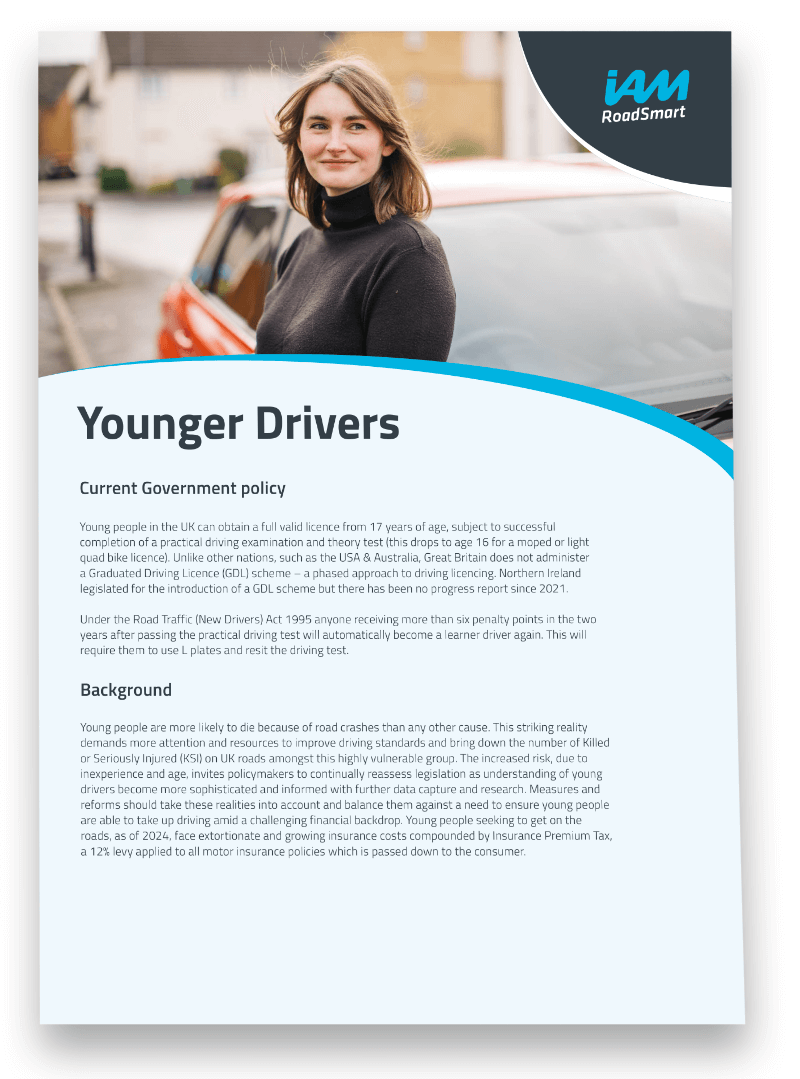
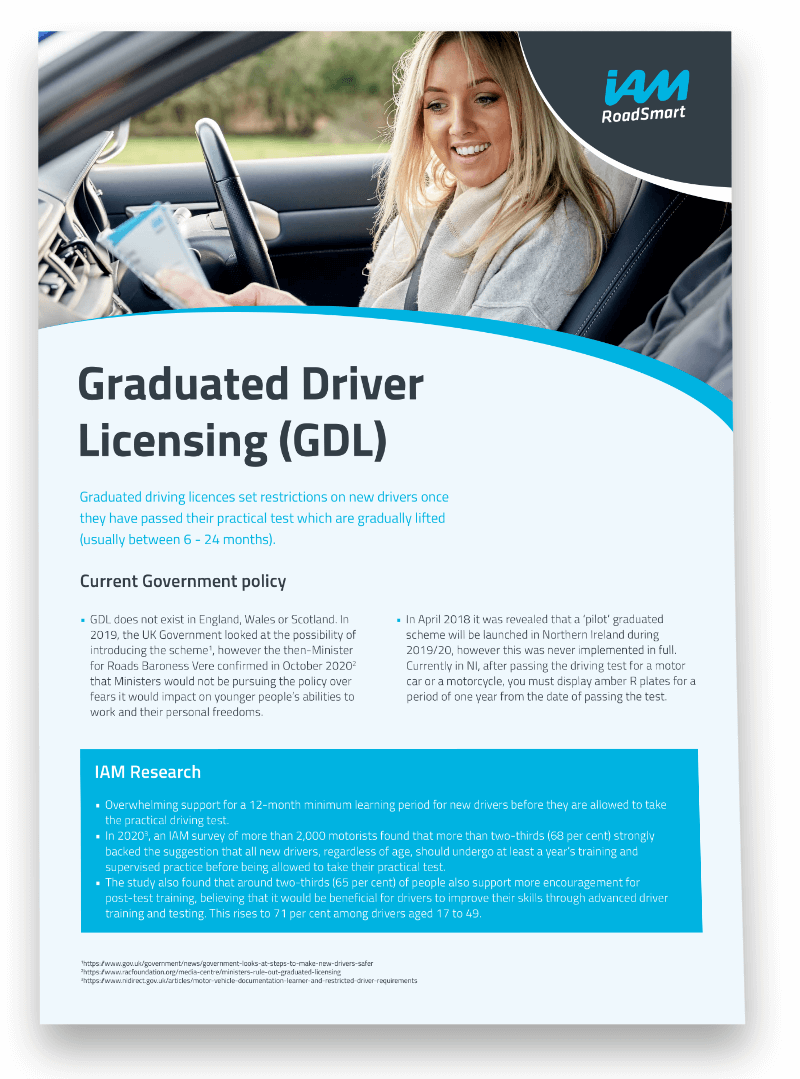
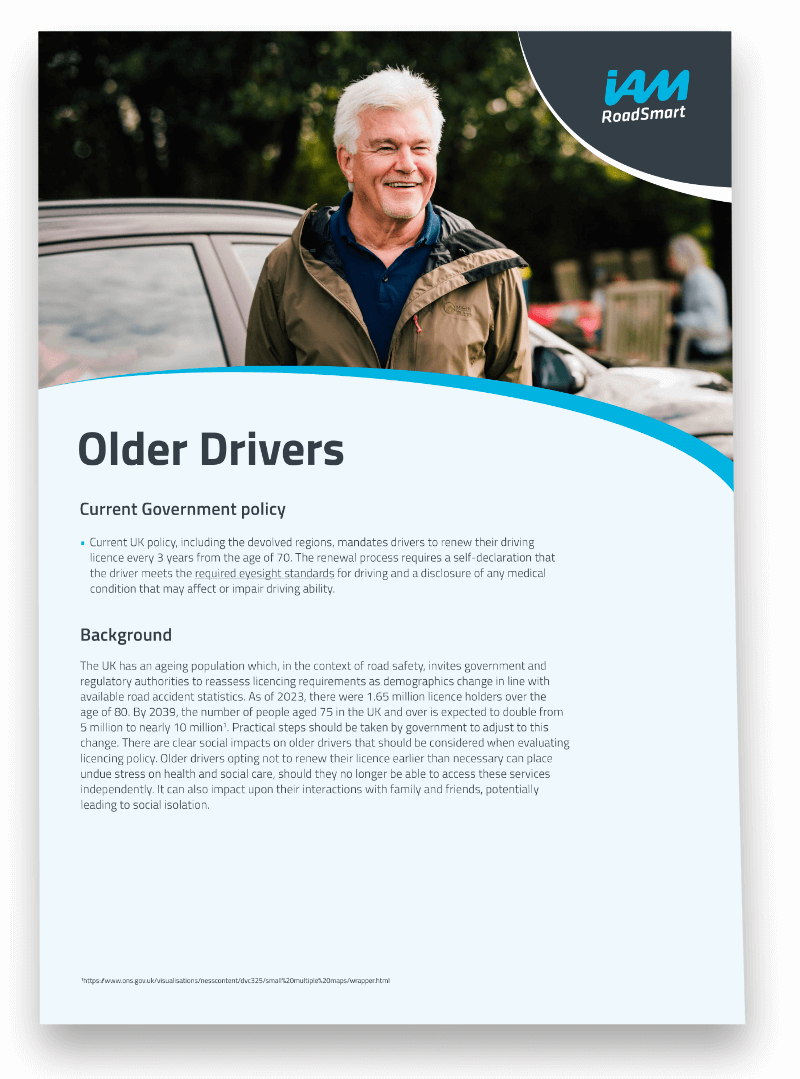
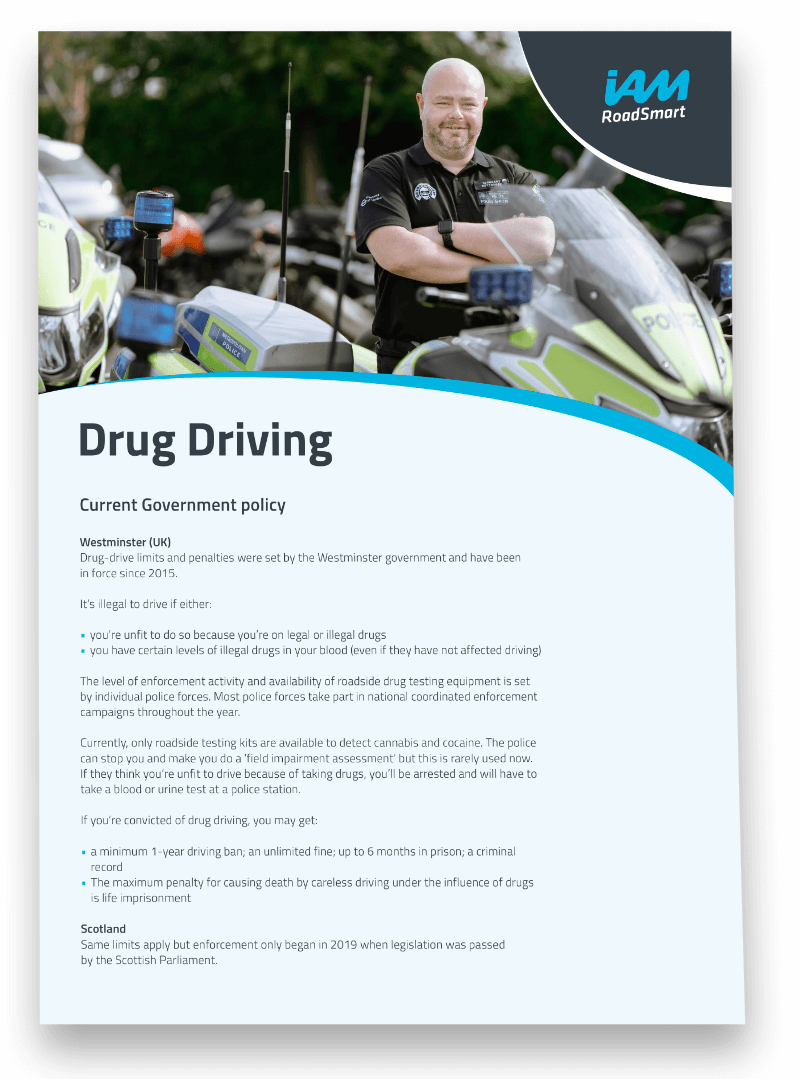
.png?sfvrsn=9b8e5f5f_4)
